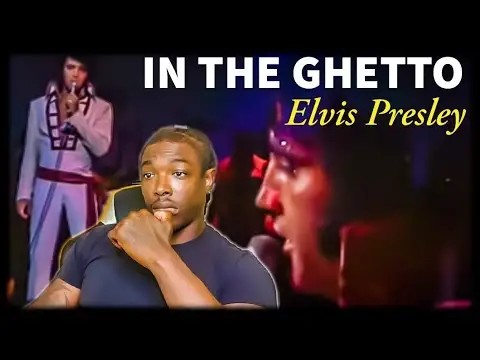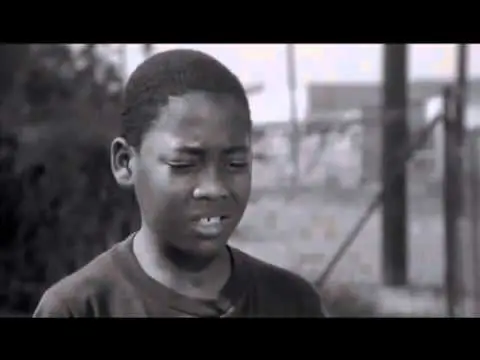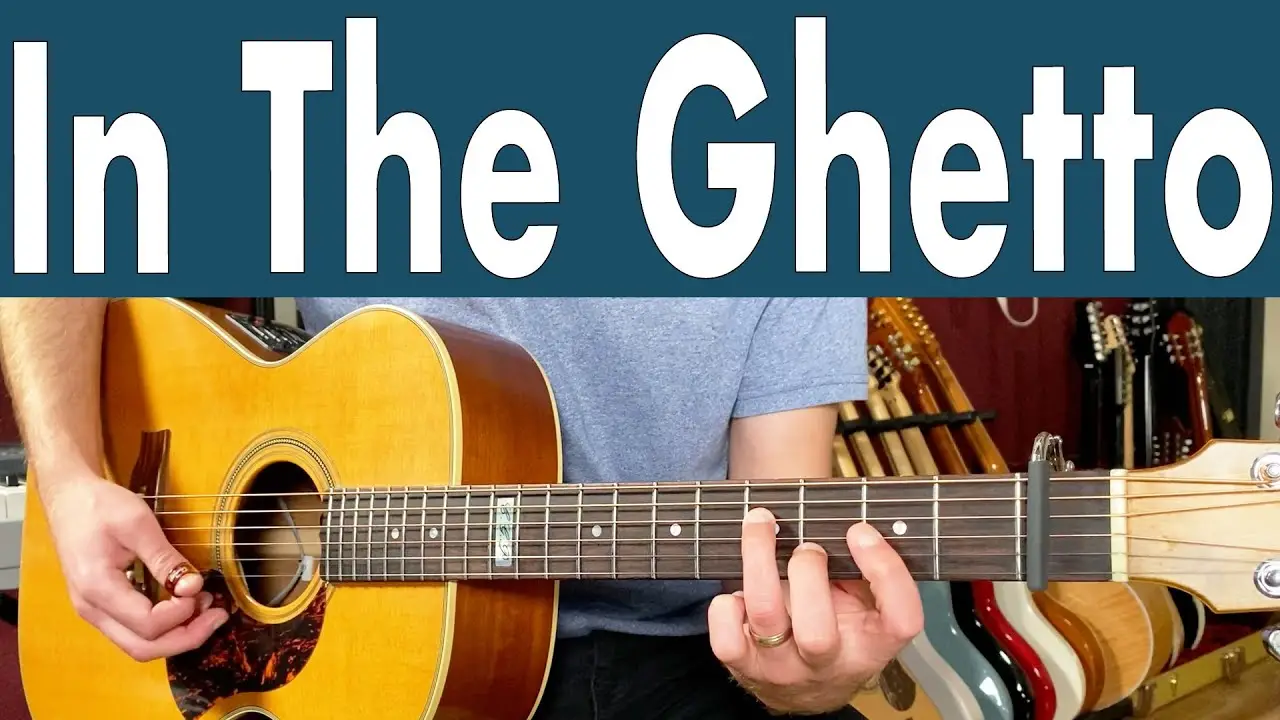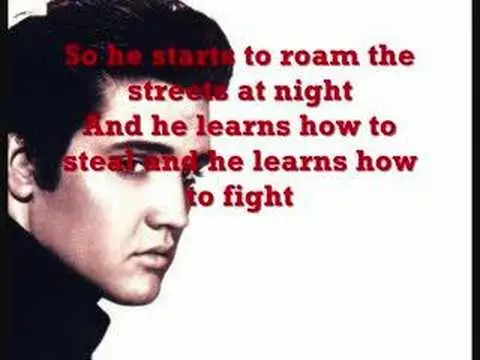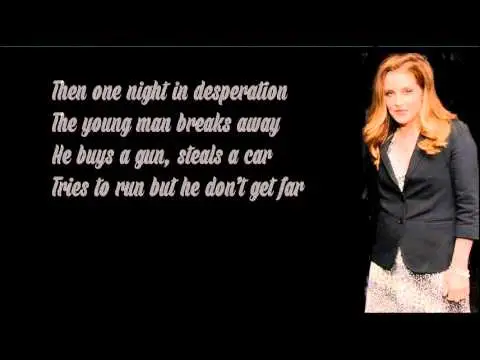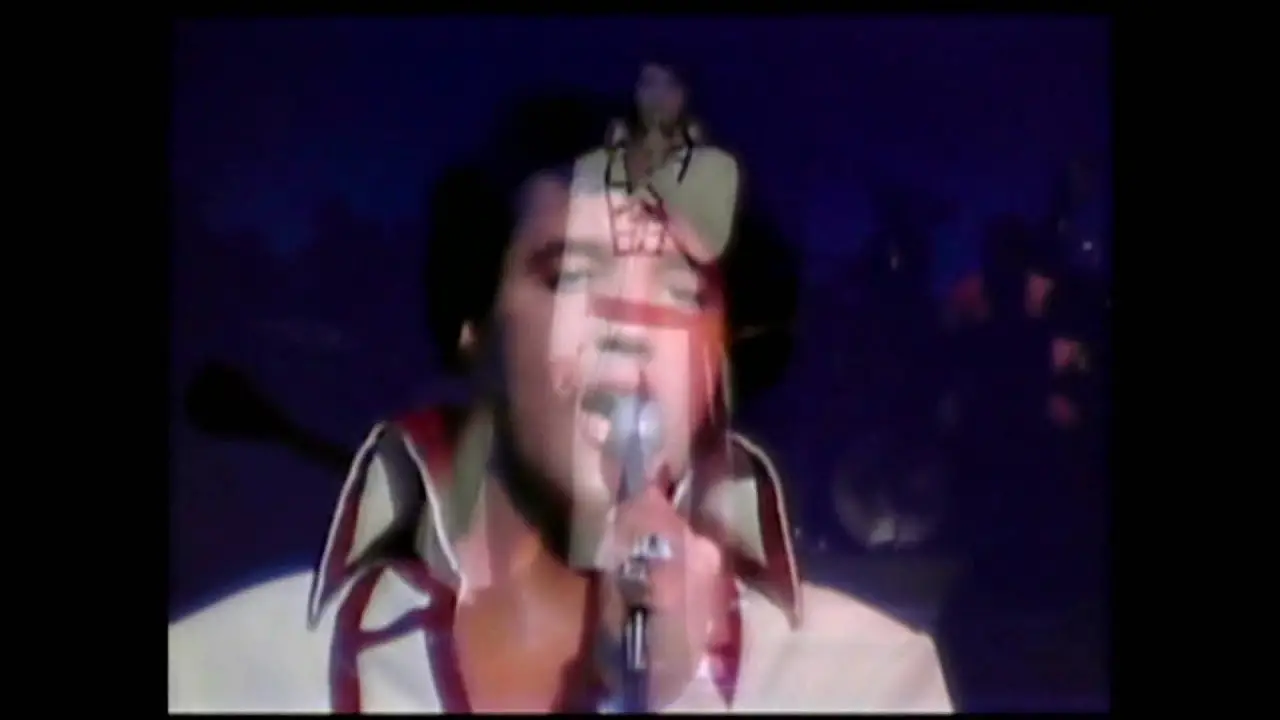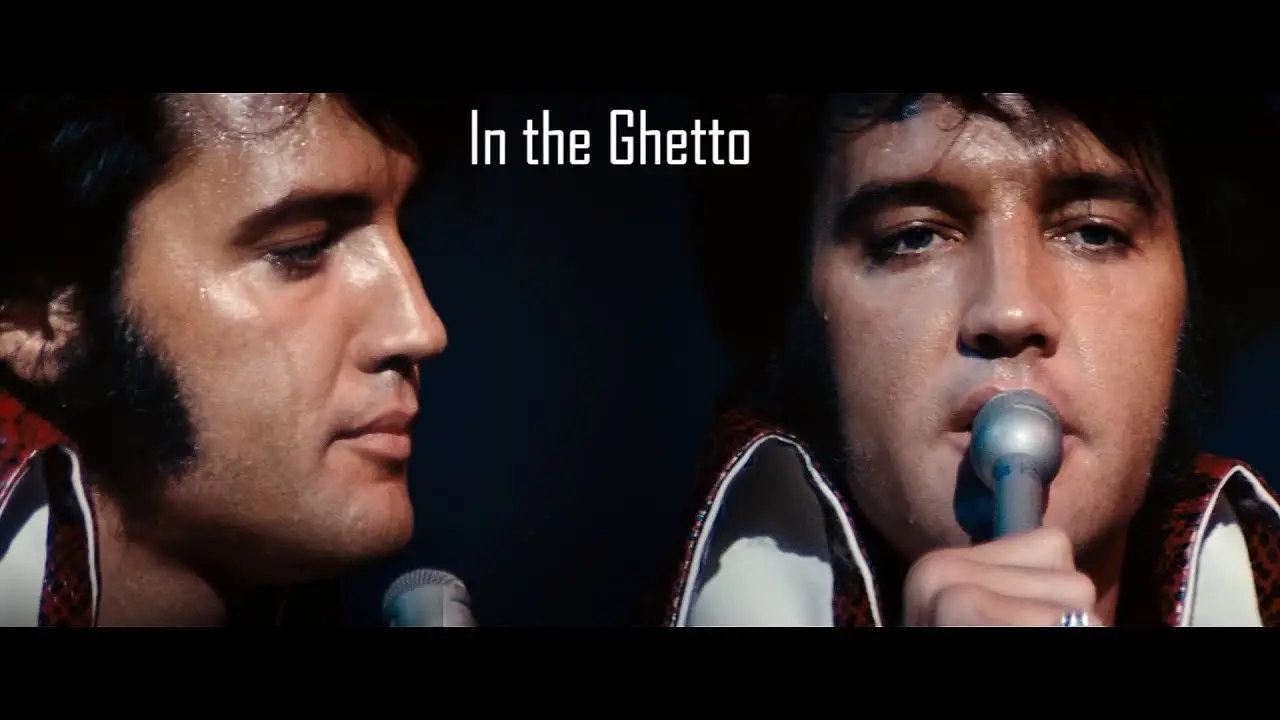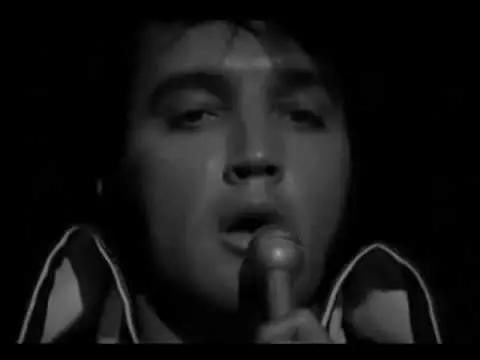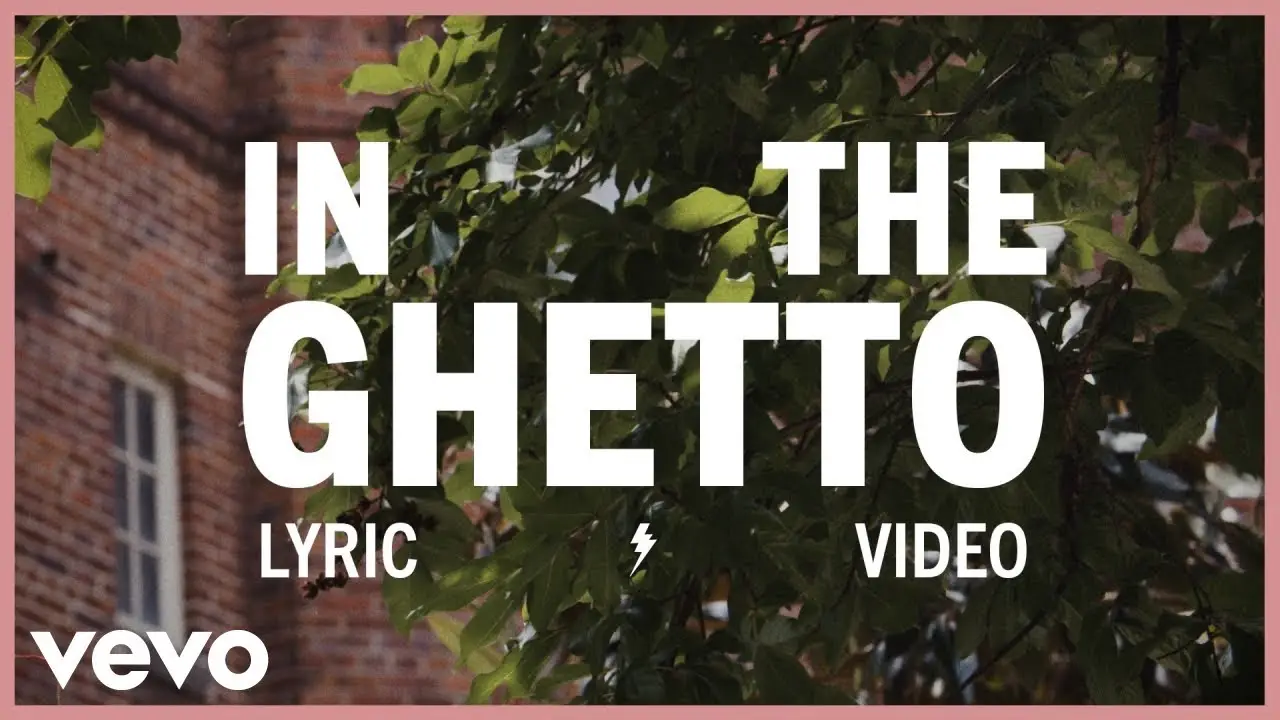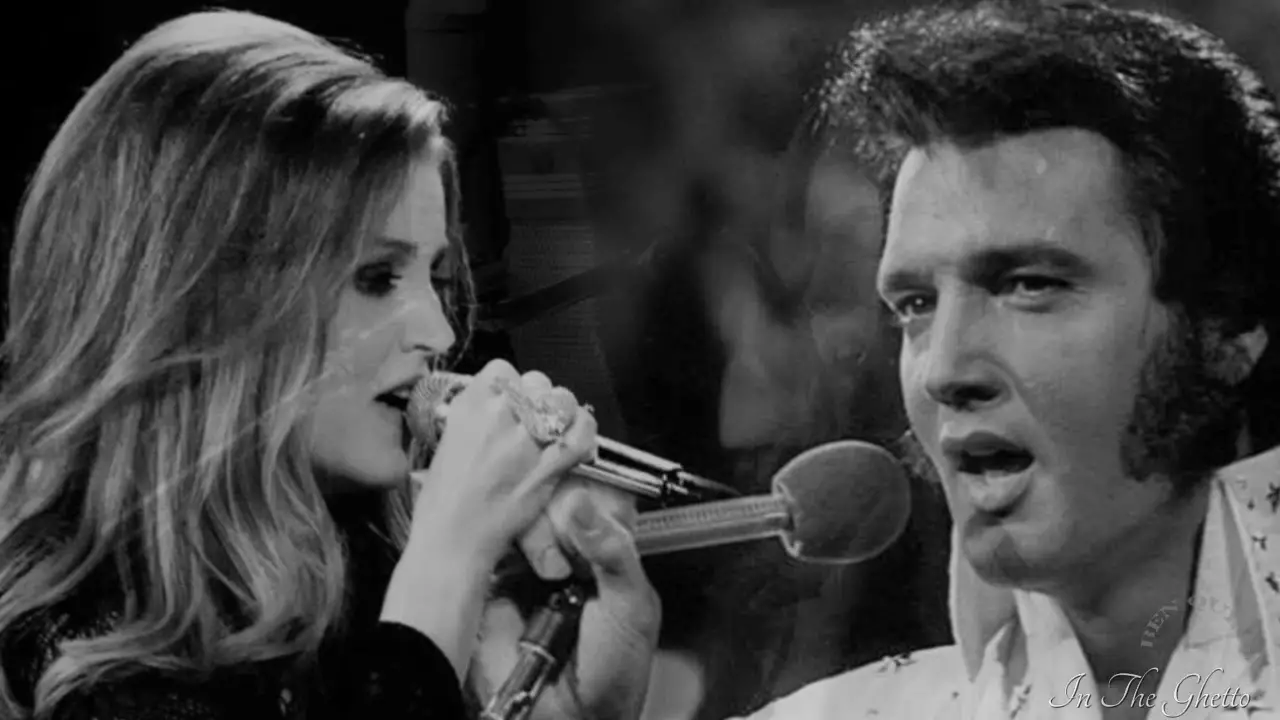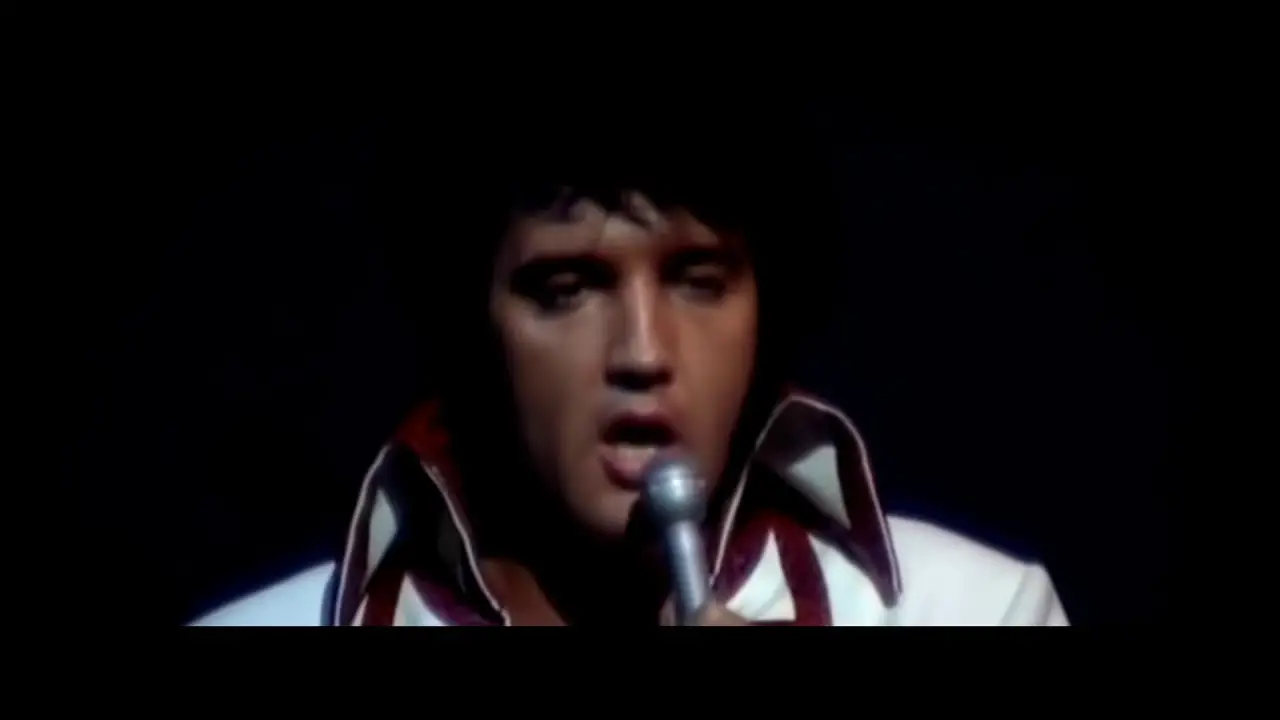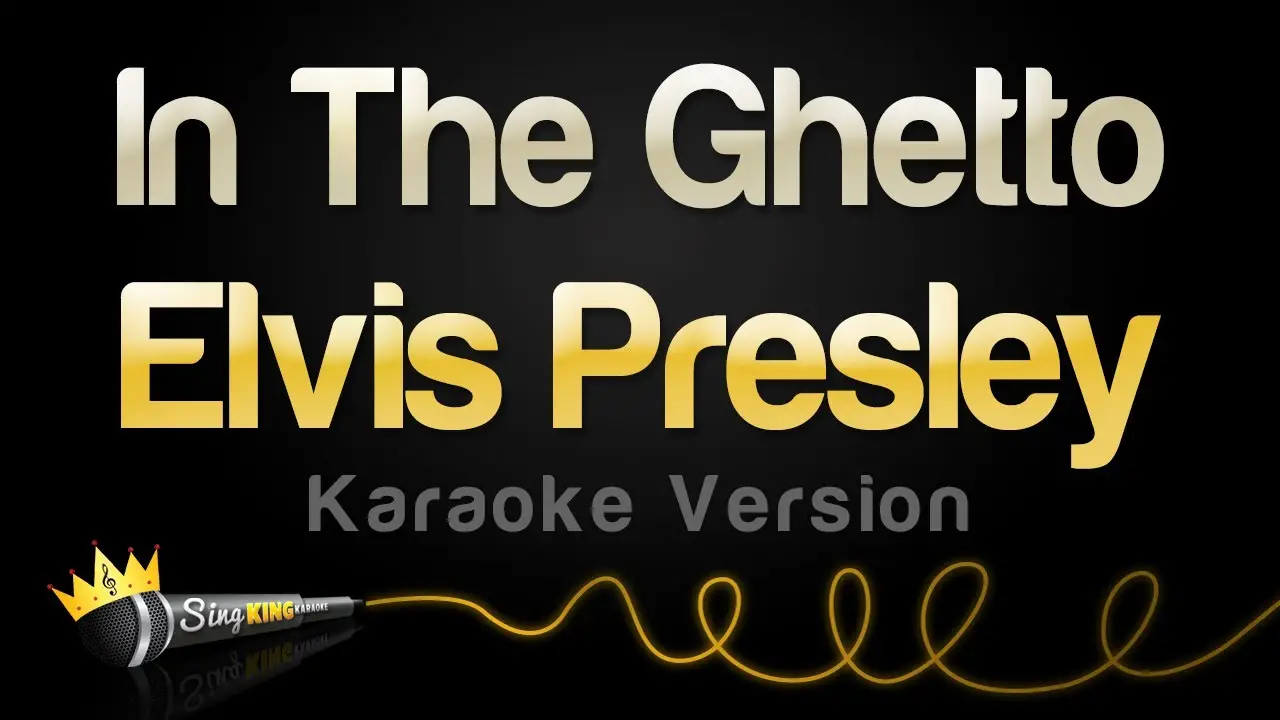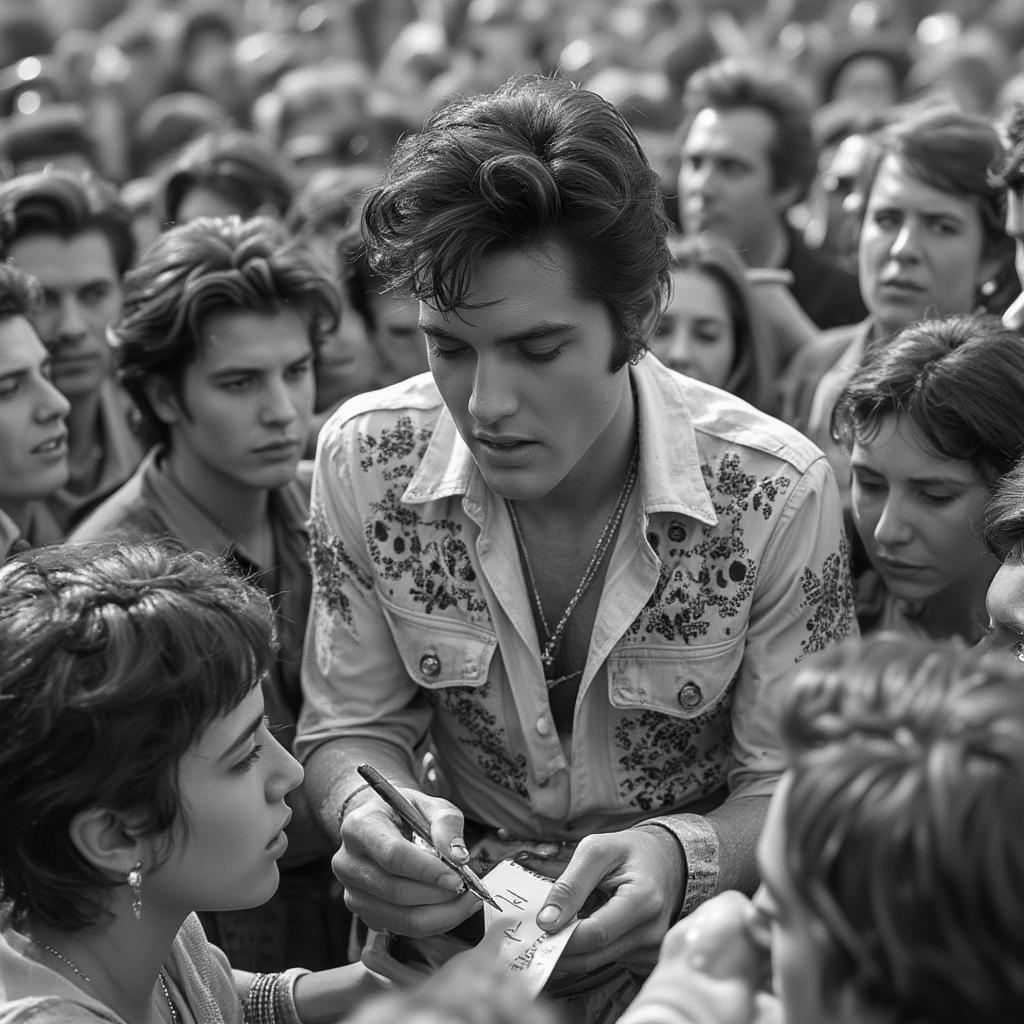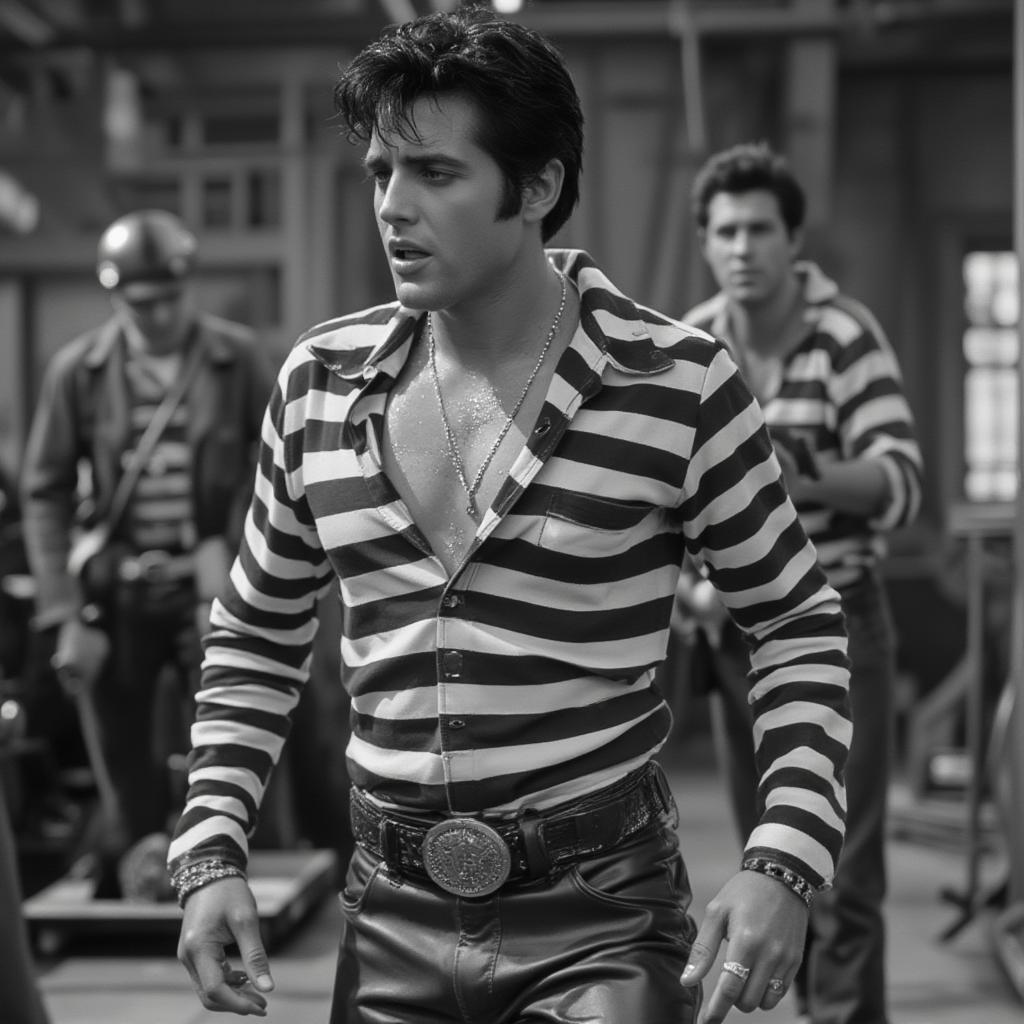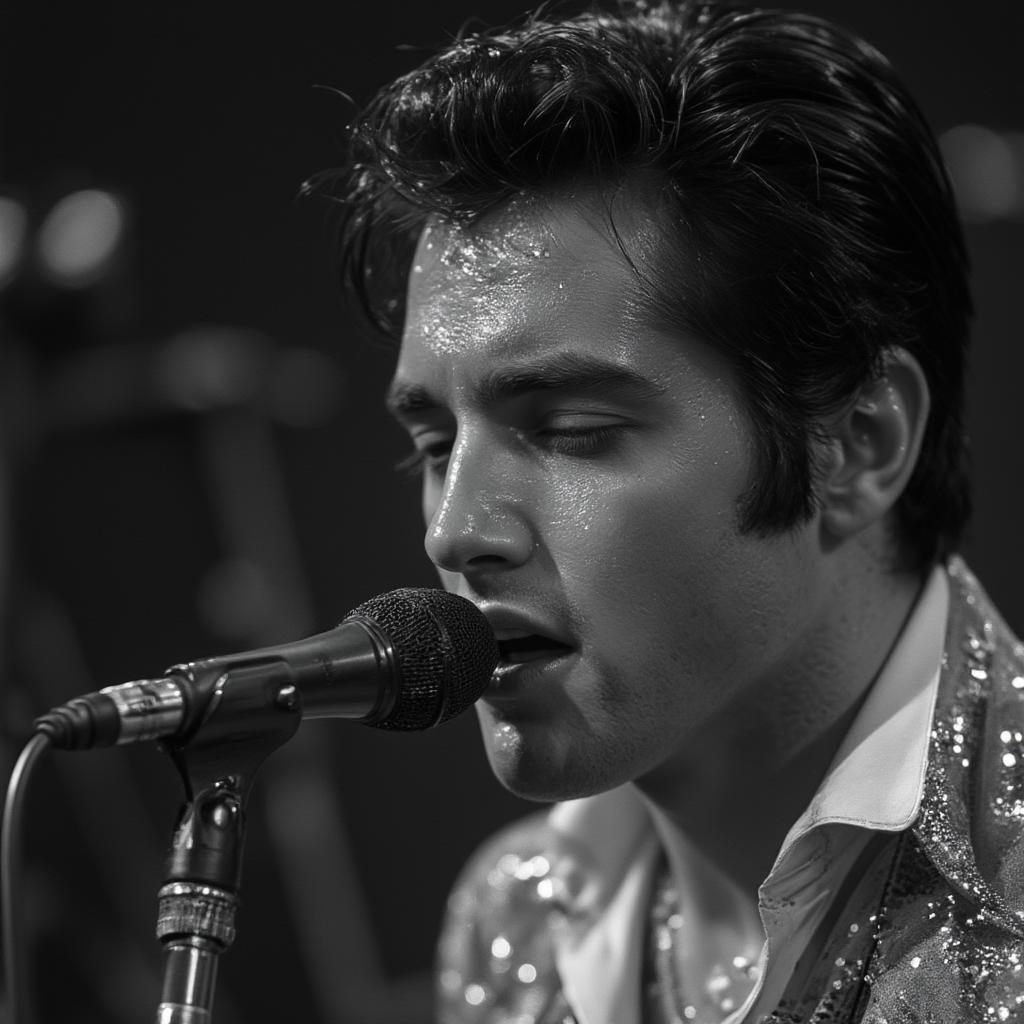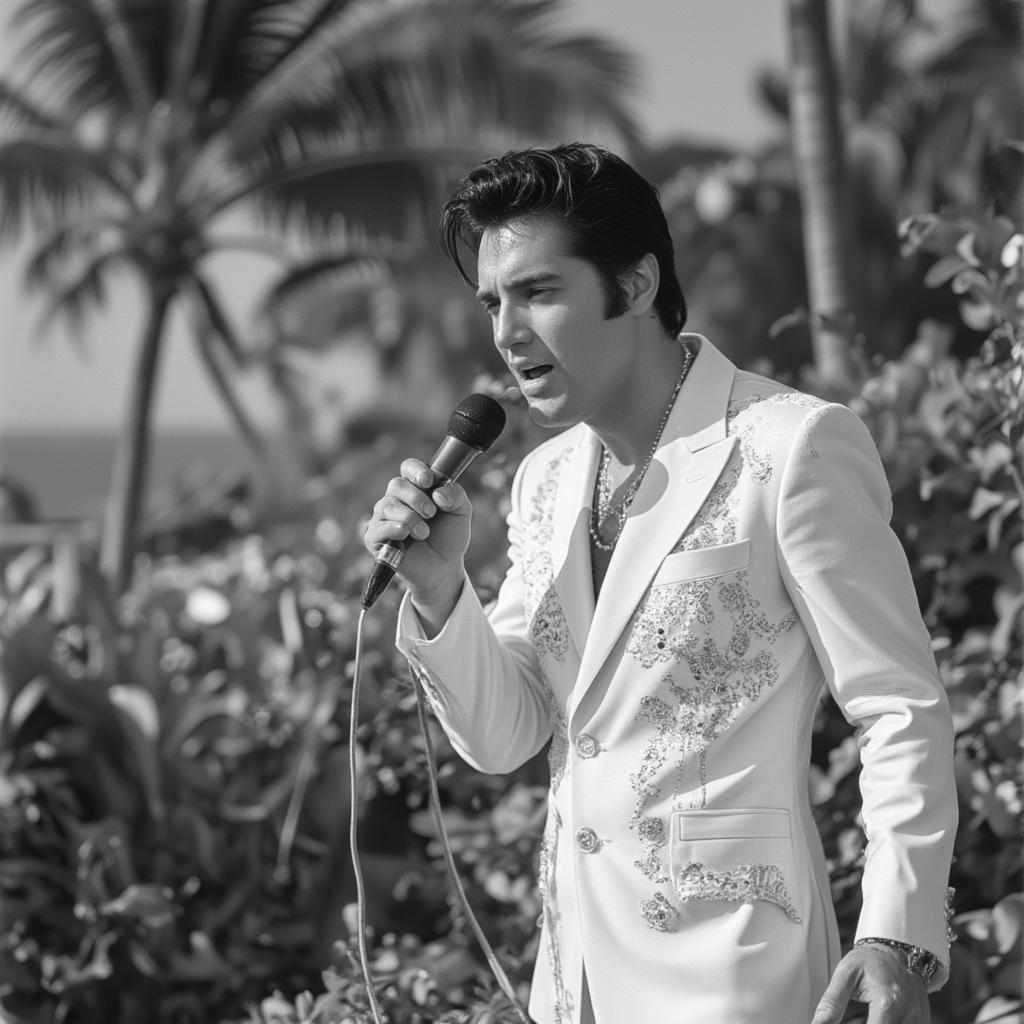In the Ghetto: From Lyrics to Social Change
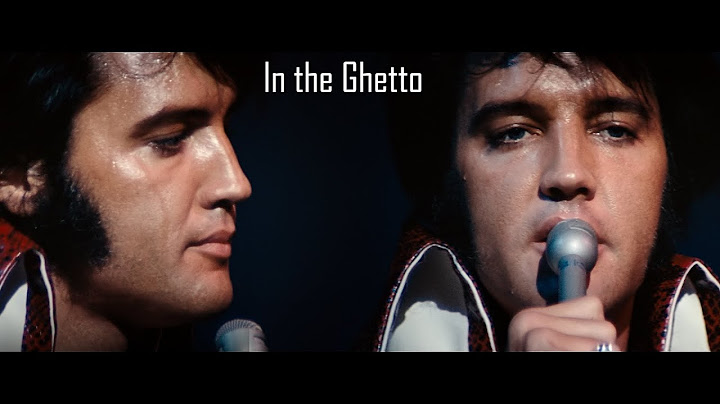
Released in 1969, “In the Ghetto” by Elvis Presley stands as a powerful and evocative social commentary on the plight of impoverished African Americans living in urban ghettos. Written by Mac Davis, the song delves into the harsh realities of systemic poverty, racial inequality, and the despair that permeated these communities. Presley’s soulful rendition brought the song to prominence, raising awareness and sparking dialogue about the pressing social issues it addressed. This article explores the profound impact of “In the Ghetto,” from its poignant lyrics to its role as a catalyst for social change.
Understanding the Social Commentary in ‘In the Ghetto’
The Lyrics: A Window into Harsh Realities
“In the Ghetto” opens with a somber description of a child’s birth in the ghetto, setting the stage for the harsh realities that await them. The lyrics paint a vivid picture of the cycle of poverty, crime, and hopelessness that often ensnares those born into such circumstances:
People, don't you understand
The child needs a helping hand
Or he'll grow to walk blindThese lines provide a poignant commentary on the lack of support and opportunities available to children growing up in impoverished neighborhoods. The imagery of a child growing up “to walk blind” speaks to the idea that without intervention and assistance, individuals born into poverty are likely to face limited prospects and struggle to break free from the cycle.
Themes of Injustice and Inequality
Throughout the song, themes of injustice and inequality are prevalent, highlighting the systemic issues that perpetuate poverty in urban ghettos. The lyrics depict a sense of resignation and inevitability, suggesting that the cycle of poverty is difficult to escape:
And his mama cries
'Cause if there's one thing that she don't need
It's another hungry mouth to feed
In the ghettoThese lines underscore the challenges faced by single mothers and families living in poverty, where the burden of providing for children can feel overwhelming. The juxtaposition of the mother’s tears with the harsh reality of hunger and deprivation serves as a stark reminder of the harsh conditions many families endure.
Critique of Societal Indifference
“In the Ghetto” also serves as a critique of societal indifference towards the plight of those living in poverty. The lyrics point to a lack of empathy and understanding, emphasizing the need for collective action to address the root causes of inequality:
And his hunger burns
So he starts to roam the streets at night
And he learns how to steal
And he learns how to fightThese lines highlight the ways in which poverty can drive individuals to desperate measures, illustrating the harsh choices faced by those struggling to survive. By portraying the consequences of neglect and apathy, the song calls attention to the urgent need for social change and compassion towards marginalized communities.
The Impact of Poverty and Inequality on Elvis Presley’s Song
Personal Connection to Social Issues
Elvis Presley’s decision to record “In the Ghetto” was influenced by his own awareness of social issues and his desire to use his platform for meaningful storytelling. As an artist with a massive following, Presley recognized the power of music to shed light on important social issues and provoke thought and discussion among his audience.
Amplifying Voices of the Marginalized
By choosing to sing “In the Ghetto,” Presley amplified the voices of the marginalized and brought attention to the struggles faced by disadvantaged communities. His rendition of the song reached a wide audience, including listeners who may not have been directly exposed to the realities of urban poverty, thus serving as a bridge for empathy and understanding.
Sparking Conversations and Reflection
The release of “In the Ghetto” sparked conversations about poverty, inequality, and social justice, prompting listeners to reflect on their own privilege and consider the structural barriers that perpetuate economic disparities. Presley’s decision to tackle such weighty subject matter through his music demonstrated a commitment to using his platform for social good and inspired others to engage with pressing social issues.
The Legacy and Influence of ‘In the Ghetto’ in American Culture
Enduring Relevance in Contemporary Society
Despite being released over five decades ago, “In the Ghetto” remains relevant in contemporary society, resonating with audiences who continue to grapple with issues of poverty, inequality, and social injustice. The song’s timeless message transcends its original context, speaking to universal themes of resilience, compassion, and the human experience.
Cultural Iconography and Collective Memory
“In the Ghetto” has become a cultural touchstone, evoking powerful emotions and memories for those who have been touched by its message. The song’s iconic status in American culture reflects its enduring impact and ability to evoke empathy and introspection among listeners of all backgrounds.
Influence on Artistic Expression
The influence of “In the Ghetto” extends beyond music, inspiring artists across various mediums to explore themes of poverty, marginalization, and social change. The song’s legacy can be seen in literature, film, visual art, and other forms of creative expression that seek to shed light on the human condition and advocate for a more just and equitable society.
Lyrical Analysis of ‘In the Ghetto’: A Deep Dive into Meaning
Symbolism and Metaphor
“In the Ghetto” employs powerful symbolism and metaphor to convey its message about poverty and inequality. The use of imagery, such as the depiction of a child born into hardship or a mother’s tears of despair, adds depth and emotional resonance to the lyrics, inviting listeners to empathize with the experiences of those living in poverty.
Narrative Structure and Storytelling
The narrative structure of “In the Ghetto” follows a chronological progression, tracing the life of a young man growing up in challenging circumstances. By telling a cohesive story through its lyrics, the song invites listeners to follow along on a journey of struggle, resilience, and ultimately, tragedy, creating a powerful emotional impact.
Emotional Impact and Catharsis
Through its lyrical content and emotive delivery, “In the Ghetto” elicits a strong emotional response from listeners, prompting reflection on the human cost of poverty and the importance of social solidarity. The song’s ability to evoke empathy and catharsis underscores its enduring appeal and relevance as a work of art that speaks to the complexities of the human experience.
Exploring the Historical Context of ‘In the Ghetto’
Civil Rights Movement and Social Unrest
The release of “In the Ghetto” in 1969 occurred against the backdrop of the civil rights movement and widespread social unrest in the United States. The song’s themes of poverty, racial inequality, and systemic injustice resonated with the turbulent sociopolitical climate of the era, reflecting the urgent need for social change and equality.
Urban Decay and Economic Disparities
During the late 1960s, many American cities were grappling with issues of urban decay, economic disparities, and racial segregation. “In the Ghetto” captured the stark realities of life in inner-city neighborhoods, shedding light on the struggles faced by residents who were often marginalized and overlooked by mainstream society.
Cultural Shifts and Musical Evolution
The late 1960s marked a period of cultural shifts and musical evolution, with artists increasingly using their platform to address pressing social issues and advocate for change. “In the Ghetto” emerged as a seminal work that reflected this broader trend, demonstrating the power of music to serve as a vehicle for social commentary and activism.
‘In the Ghetto’ as a Catalyst for Social Change
Raising Awareness and Empathy
“In the Ghetto” served as a catalyst for social change by raising awareness and fostering empathy towards the experiences of those living in poverty. The song’s emotional resonance and evocative lyrics prompted listeners to confront the harsh realities of urban ghettos and consider their own role in addressing systemic inequalities.
Mobilizing Action and Advocacy
Beyond raising awareness, “In the Ghetto” mobilized action and advocacy around issues of poverty and social justice. The song inspired individuals and organizations to take concrete steps towards supporting marginalized communities, whether through charitable initiatives, policy advocacy, or community organizing efforts.
Shifting Cultural Narratives
By challenging prevailing cultural narratives about poverty and inequality, “In the Ghetto” helped to shift public perceptions and attitudes towards disadvantaged populations. The song encouraged listeners to question stereotypes, confront biases, and recognize the humanity and dignity of those living on the margins of society.
The Enduring Message of ‘In the Ghetto’ in the 21st Century
Continued Relevance and Resonance
“In the Ghetto” continues to resonate in the 21st century, speaking to ongoing challenges related to poverty, inequality, and social justice. The song’s enduring message serves as a reminder of the persistent need for collective action and solidarity in addressing systemic issues that impact vulnerable communities.
Intersectionality and Complex Realities
As societal issues become increasingly interconnected and complex, “In the Ghetto” offers a lens through which to understand the intersecting forces of poverty, race, gender, and class that shape individuals’ lived experiences. The song’s nuanced portrayal of these dynamics underscores the importance of adopting an intersectional approach to social justice advocacy.
Call to Action and Empowerment
“In the Ghetto” stands as a call to action and empowerment, urging listeners to engage with issues of poverty and inequality in meaningful ways. The song challenges individuals to reflect on their own privilege, advocate for systemic change, and stand in solidarity with those who are most affected by social injustices.
Examining the Production and Recording of ‘In the Ghetto’
Studio Collaboration and Creative Process
The production and recording of “In the Ghetto” involved collaboration between Elvis Presley, songwriter Mac Davis, and a team of talented musicians and producers. Together, they worked to bring the song to life, experimenting with different musical arrangements and vocal styles to capture the emotional depth of the lyrics.
Musical Arrangements and Instrumentation
The musical arrangements of “In the Ghetto” complement the song’s lyrical content, enhancing its emotional impact and narrative arc. From the haunting melody of the piano to the soulful harmonies of the background singers, each element of the instrumentation contributes to the overall mood and atmosphere of the track.
Vocal Performance and Interpretation
Elvis Presley’s vocal performance on “In the Ghetto” is characterized by its raw emotion, sincerity, and vulnerability. His distinctive voice conveys the pain, longing, and resilience embedded in the lyrics, drawing listeners into the narrative and inviting them to empathize with the song’s central themes.
The Personal Impact of ‘In the Ghetto’ on Elvis Presley
Emotional Connection to the Material
Recording “In the Ghetto” had a profound emotional impact on Elvis Presley, who felt a personal connection to the material and its themes of poverty and social injustice. The song allowed Presley to express his empathy and compassion for those facing adversity, showcasing a more introspective and socially conscious side of his artistry.
Legacy of Social Advocacy
“In the Ghetto” contributed to Elvis Presley’s legacy as a socially conscious artist who used his platform to advocate for positive change. The song demonstrated Presley’s willingness to engage with difficult subject matter and challenge his audience to confront uncomfortable truths about the world around them.
Lasting Influence on Artistic Direction
The success of “In the Ghetto” had a lasting influence on Elvis Presley’s artistic direction, inspiring him to explore more socially relevant themes in his music and push the boundaries of his creative expression. The song’s impact on Presley’s career underscored the power of music to effect change and provoke thought among listeners.
Elvis Presley’s Iconic Song In the Ghetto
Elvis Presley’s Top Hits of the 1970s
‘In the Ghetto’: A Timeless Song that Continues to Resonate
Universal Themes and Human Experience
“In the Ghetto” endures as a timeless song due to its exploration of universal themes and the human experience. The song’s poignant lyrics, emotive delivery, and evocative storytelling speak to the shared struggles, hopes, and aspirations that connect people across time and place.
Intergenerational Appeal and Cultural Significance
Across generations, “In the Ghetto” maintains its appeal and cultural significance, resonating with listeners who continue to grapple with issues of poverty, inequality, and social justice. The song’s ability to transcend temporal boundaries and speak to diverse audiences underscores its enduring impact and relevance.
Musical Legacy and Artistic Achievement
As a work of musical artistry, “In the Ghetto” stands as a testament to the power of music to inspire change, foster empathy, and provoke reflection. The song’s legacy as a socially conscious anthem continues to shape the landscape of popular music and remind us of the transformative potential of art in addressing pressing social issues.
Conclusion
“In the Ghetto” by Elvis Presley remains a powerful and poignant social commentary that continues to resonate with audiences today. Through its evocative lyrics, emotional resonance, and enduring message, the song serves as a catalyst for social change, sparking conversations about poverty, inequality, and the human experience. As we reflect on the legacy and influence of “In the Ghetto,” we are reminded of the enduring power of music to shed light on pressing social issues and inspire us to work towards a more just and equitable society.

